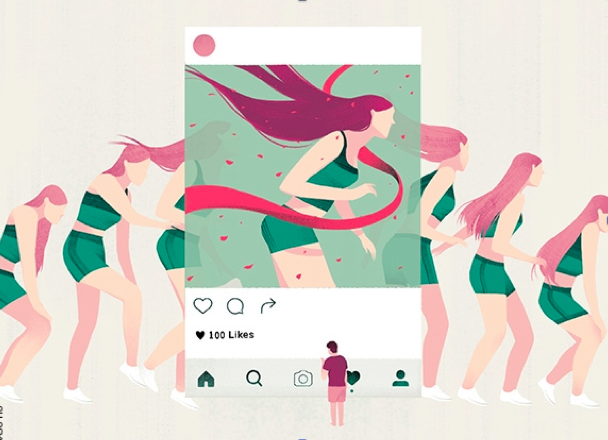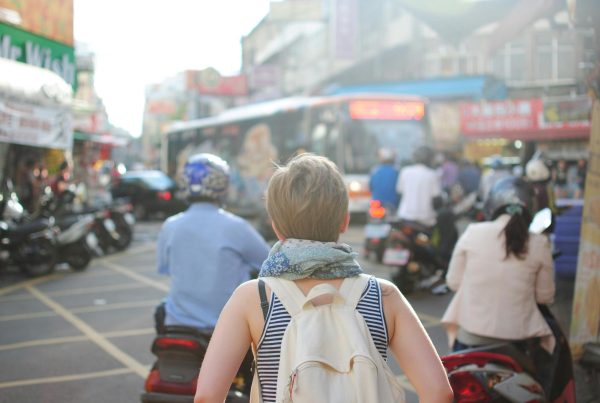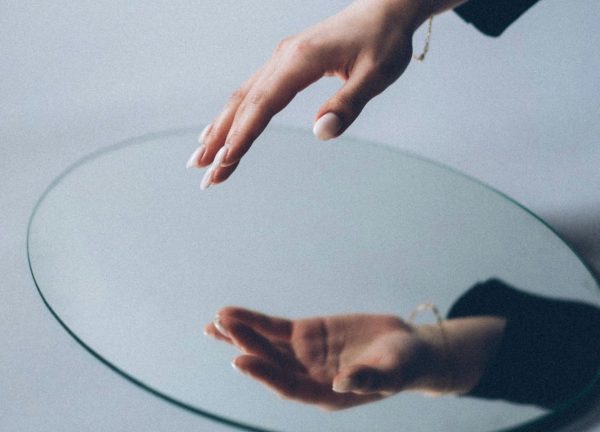The Toxic Mirror Called Social Media
You pick up your phone to check your social media feed. You begin to scroll through pictures of healthy breakfasts, airplane wings and skinny people working out, as you sigh loudly and think to yourself: “I wish I looked like that.” or “Why isn’t my life like that?”
If this sounds anything like your daily morning routine, know that you are not alone. According to National Report on Self Esteem, 98% teenage girls and 80% teenage boys feel there is an immense pressure from external sources to look a certain way. Consequently, 92% of teen girls would like to change something about the way they look, with body weight ranking as the highest factor.
There are multiple reasons as to why self-esteem statistics among teenagers are this high, such as pressure from family and friends or advertisements, but perhaps in times like these, social media may be the most influential factor of them all. While social media is not to blame for all issues that teenagers have with appearances and perception, it is undoubtedly a very important one. Before the time of social media, body issues and insecurities among teenagers were still present but originated more from unrealistic standards of beauty from models, celebrities, magazines and advertisements and idealizations were acknowledged as well as brushed away “because they’re models, they’re supposed to look like that.”
These days, however, the impossible standards hit much closer to home, not just by celebrities and models on social media but also by our own classmates, friends and family. This puts more pressure on teenagers because compared to celebrities before, they feel like their friends are similar to them and that they have to keep up and constantly measure up to them. Thus, when scrolling through our social media feeds, which are filled with beautiful couples and people who travel for a living, it’s impossible not to compare their lives with one’s own.
It’s thus no wonder that 80% of women say that the images of women on television, movies, fashion magazines, advertising and social media make them feel insecure. The problem also goes beyond just teenagers. According to Park Nicolett Melrose Center, over 80% of 10 year olds are afraid of being too fat and 53% of 13 year old American girls are unhappy with their bodies. This number grows by 78% by the time girls reach 17.
However, what is important for the 60% of teenagers that have reported that using social media has impacted their self-esteem in a negative way, is that what people post on social media is the highlight reel of their lives, and that comparing those highlights with your behind the scenes is precisely what makes social media so toxic, especially to teenagers. Pictures are usually edited, staged and took a long time to make perfect.
Parents, teachers and adults can also help kids in building a safe and reasonable relationship with social media. Telling the child to banish or blame social media all together is not the answer, but instead it’s important for parents to first take social media seriously and realize the powerful impact it has, but also praising your children’s efforts may make them feel like they are enough and not having to constantly compare with other people on social medias.
Another thing teenagers should do is take a look at their own social media accounts, and think to themselves: “Is this a realistic depiction of how my life looks like?” Most likely, the answer is no. We are all guilty of posting the highlight reels of our lives, but it’s also important to recognize that nobody is perfect and that what is posted on social media shows just a fraction of people’s real lives.







Maxence Liesenborgs • Nov 30, 2017 at
It is truly fascinating and interesting how many people allow themselves to be influenced so much by social media. Fantastic writing by the way!